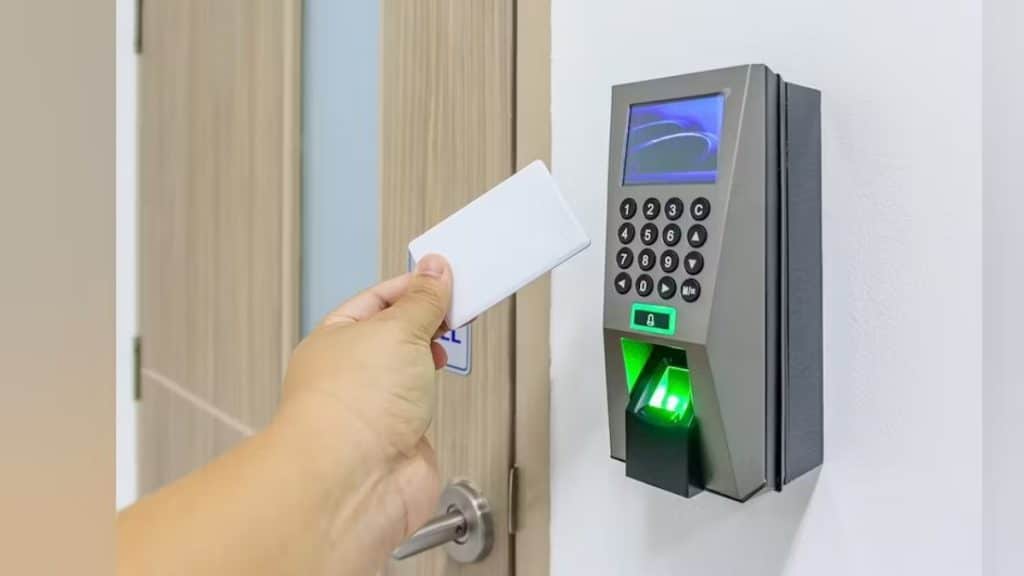In the modern business environment, ensuring the safety of a company’s assets, employees, and information is more challenging than ever. With increasing threats and the need for robust protection, modern security systems have become essential in managing risks. Access control is one of the most critical components of these systems, helping businesses safeguard their premises from unauthorized entry. This article delves into the importance of access control and how it functions.
What Is Access Control in Commercial Security Systems?
At its core, access control regulates who can enter a building or specific areas within it as part of comprehensive commercial security systems. It is a system designed to ensure that only authorized individuals can access restricted zones. Businesses use various methods, such as keycards, biometric scans, or PIN codes, to enforce these entry restrictions. By doing so, access control enhances safety while offering companies both flexibility and ease of operation.
But why is access control necessary? As businesses grow and expand, so do the challenges of managing access to sensitive areas like data rooms, executive offices, or warehouses. Without a robust system in place, companies may face risks like theft, unauthorized access, or even workplace violence.
How Does Access Control Work?
The operation of an access control system can vary depending on the level of protection required. Generally, these systems function by granting individuals access based on their credentials. They typically include hardware and software components, such as door controllers, card readers, and sensors. Here’s how the process unfolds:
- Identification: When an individual approaches a secure area, they provide credentials, such as a keycard, biometric data (such as fingerprints), or even mobile devices using RFID technology.
- Verification: The system cross-checks the credentials against a database to verify the user’s identity.
- Authorization: Once verified, the system grants or denies entry based on access permissions, time, and location.
Benefits of Access Control
Implementing access control as part of a broader security system offers several advantages:
- Enhanced Protection: Limits entry to authorized personnel, reducing theft or unauthorized activities, especially in sensitive areas
- Real-Time Monitoring: Tracks who enters and exits, helping identify potential threats and maintain security
- Customization: Adjusts access based on roles, ensuring that only necessary areas are accessed by employees, contractors, and visitors
- Minimized Human Error: Automates permissions, eliminating issues like lost keys or unlocked doors
- Operational Efficiency: Allows authorized personnel to access work areas quickly, improving workflow and reducing interruptions
Why Is Access Control Critical for Commercial Properties?
The need for efficient access control is particularly critical in commercial properties. Whether a small office or a large corporate campus, businesses must safeguard their assets, protect sensitive information, and ensure that only the right people can enter restricted spaces. For example, in a multi-floor office building, without access control, individuals from one department could easily wander into another department’s restricted areas, potentially exposing confidential data or creating gaps in safety. Access control systems lessen such risks by ensuring only authorized personnel can access sensitive zones.
The Integration of Access Control with Other Security Features
Modern security systems often combine access control with video surveillance, alarm systems, and emergency protocols. This integrated approach provides a more comprehensive solution to addressing various security threats. For instance, if someone attempts to bypass access control and enters an unauthorized area, the system can trigger an alarm or alert security personnel. They can then review surveillance footage to verify the situation and respond accordingly. This integration enhances overall protection, allowing businesses to respond quickly to potential threats and thus reducing the chances of a security breach.
How Can Businesses Benefit from Professional Security Services?
Although access control systems provide essential benefits, their successful implementation and maintenance require expertise. Professional security companies specialize in the design, installation, and ongoing support of access control systems. These experts ensure that the system operates efficiently, integrates seamlessly with other security components, and remains up to date with the latest technological advancements.
Additionally, a professional service provider can offer employee training, helping staff understand how to use the system effectively. They can also conduct regular audits and updates to ensure that the system continues to meet the evolving needs of the business. In an age of constantly changing security threats, access control is more important than ever. By regulating who enters their commercial property and specific areas within it, businesses can significantly reduce the risks associated with unauthorized access.
Modern commercial security systems are designed to be flexible, easy to manage, and highly effective. Whether securing a small office or a large enterprise, access control is a powerful tool that enhances both safety and operational efficiency. By integrating access control with other security measures, businesses can create a comprehensive security solution that adapts to their needs, offering protection today and well into the future.
